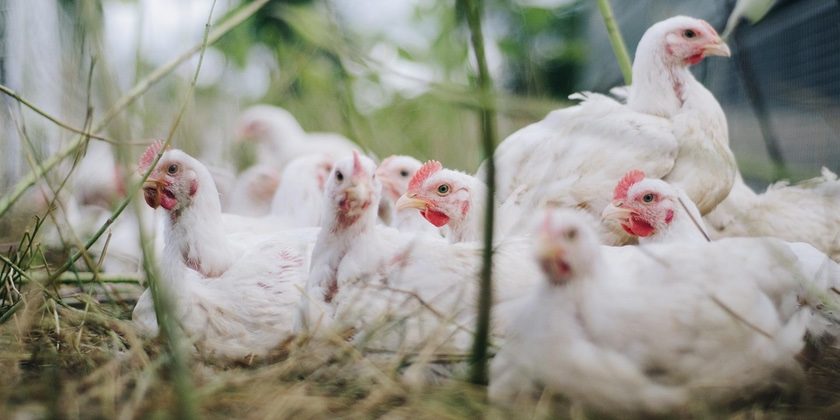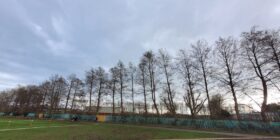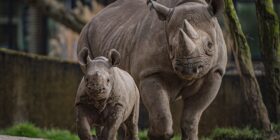Mandatory housing rules for poultry and birds keepers in Wales to change in May

The mandatory housing measures for poultry and captive birds, which were introduced across the United Kingdom to help stop the spread of bird flu, will be lifted from 00:01 on Monday 2 May 2022.
Poultry and other captive birds will no longer need to be housed, unless they are in a Protection Zone, and will be allowed to be kept outside, the Chief Veterinary Officers have confirmed.
While the risk of bird flu has been reduced to ‘medium’ for premises with poor biosecurity, the enhanced biosecurity requirements that were brought in as part of the Avian Influenza Prevention Zone (AIPZ) will remain in force as infection may still be circulating in the environment for several more weeks.
All poultry gatherings will remain banned.
Those who intend to allow their birds outside are advised to use the upcoming days to prepare their outside areas for the release of their birds.
This will include cleansing and disinfection of hard surfaces, fencing off ponds or standing water and reintroduction of wild bird deterrents.
The UK has faced its largest ever outbreak of bird flu with over 100 cases confirmed across the country since late October.
“Scrupulous biosecurity is the most effective method of disease control available and all bird keepers should apply enhanced measures at all times to prevent the risk of future outbreaks.” The Welsh government said.
European Union rules, which Britain still follows, allows for free-range laying hens to be kept inside for up to 16 weeks in the event of a bird flu outbreak and their eggs can still be labelled free range.
Since March 21, however, all eggs from free-range birds that were being housed have had to be labelled as barn eggs.
In a joint statement, the four Chief Veterinary Officers said: “Whilst the lifting of the mandatory housing measures will be welcome news to bird keepers, scrupulous biosecurity remains the most critical form of defence to help keep your birds safe.
“It is thanks to the hard work of all bird keepers and vets, who have played their part in keeping flocks safe this winter, that we are in a position to take this action.”
“However, the recent cases of avian influenza show that it’s more important than ever for bird keepers to remain vigilant for signs of disease and maintain stringent standards of biosecurity.”
“The Avian Influenza Prevention Zone (AIPZ) will remain in force across the UK, with only the housing measures component being lifted from Monday 2nd May.”
“This means all bird keepers (whether they have pet birds, a commercial sized or a backyard flock) must be diligent in continuing to take effective and precautionary biosecurity measures including cleansing and disinfecting equipment, clothing and vehicles, limiting access to non-essential people on their sites, and workers changing clothing and footwear before entering and when leaving bird enclosures.”
Poultry and captive bird keepers must be vigilant for any signs of disease in their birds and any wild birds, and seek prompt advice from their vet if they have any concerns.
All bird keepers must:
- Cleanse and disinfect clothing, footwear, equipment and vehicles before and after contact with poultry and captive birds – if practical, use disposable protective clothing
- Reduce the movement of people, vehicles or equipment to and from areas where poultry and captive birds are kept, to minimise contamination from manure, slurry and other products, and use effective vermin control
- Thoroughly cleanse and disinfect housing on a continuous basis
- Keep fresh disinfectant at the right concentration at all farm and poultry housing entry and exit points
- Minimise direct and indirect contact between poultry and captive birds and wild birds, including making sure all feed and water is not accessible to wild birds
“We would encourage all keepers to register their flocks with the Animal and Plant Health Agency. ”
“For poultry this is a legal requirement if you have 50 birds or more (poultry includes chickens, ducks, turkeys, geese, pigeon (bred for meat), partridge, quail, guinea fowl and pheasants).”
“Registering with us means that we will be able to contact you with information or action required should an outbreak happen near you.”
“Do not touch or pick up any dead or sick birds that you find.”
“Public health advice is that the risk to human health is very low. The Food Standards Agency and Food Standards Scotland advise that avian influenza poses a very low food safety risk for UK consumers, and it does not change their current advice on consumption of poultry products including eggs.”
“Bird keepers should report suspicion of disease in Wales to 0300 303 8268”
“If you find dead swans, geese or ducks or other dead wild birds, such as gulls or birds of prey, you should report them to the Defra helpline on 03459 33 55 77”
Spotted something? Got a story? Email [email protected]












